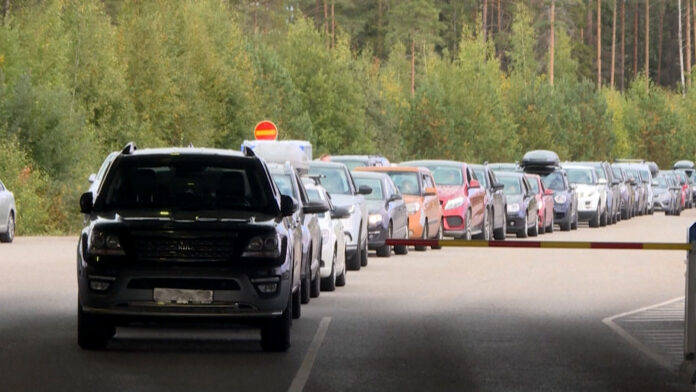
The threat level in Lithuania has not changed due to Russia’s announced mobilization, confirmed the Emergency Situation Management Committee led by Lithuanian Interior Minister Agnė Bilotaitė on September 21. All the restrictions introduced as part of the existing state of emergency, including tighter controls for Russian citizens that came into effect earlier this week remain in place, the ministry said. Only the services responsible for the security of the country’s population have been put on a higher alert for the time being, it said, adding that border controls on the Lithuanian borders with Russia and Belarus also remain in force. There will be no change in the procedure for issuing visas to Russian citizens and their entry into Lithuania, the Interior Ministry said.
In response to Russian Defence Ministry’s announcement that some 300,000 reservists would be mobilized, Lithuania put its rapid response force on a higher alert, and the country’s President Gitanas Nausėda intends to convene a meeting of the State Defence Council next week.
After Russia’s announcement, Lithuania says it will not be issuing humanitarian visas to Russians trying to avoid conscription but will decide on a case-by-case basis. Meanwhile, Latvia said it will not admit Russians running from mobilization. Lithuania’s Ministry of Foreign Affairs stressed that Vilnius “does not have the goal or the capacity to issue humanitarian visas to all Russian citizens who apply for them”.
Applications require background checks related to national security issues. Applications from Russian citizens will continue to be assessed in the usual way, taking into account all circumstances and on an individual basis, in order to avoid threats to Lithuania’s national security and to keep the door open for persecuted representatives of civil society and the opposition, according to the ministry. The ministry also said that Lithuania would continue to consult with regional partners and the European Union on how to respond. Lithuanian Prime Minister Igrida Šimonytė also said that it was not “Lithuania’s duty, nor that of other neighbouring countries, to save all Russian citizens from the mobilization”.
Germany is ready to send more troops to Lithuania to deter Russia from further aggressive actions, German Defence Minister Christine Lambrecht said in Lithuania on September 20.
“We must introduce tougher deterrence measures, and we stand ready to send more troops [to the region], both land and air forces. Also, to send more troops to Lithuania in order to send a signal that we stand in solidarity with partners,” she told a press conference in Lithuania’s Rukla military base. Lithuanian Minister of Defence Arvydas Anušauskas says there are now some 130,000 Russian troops near Ukraine’s borders, including around 30,000 stationed in Belarus.
Germany is leading the international NATO battalion in Lithuania. Last week, it sent in more troops and plans to bring the number of the additional troops to 350 by the end of this week.
Lambrecht also condemned the Kremlin’s decision to recognize the separatist regions in eastern Ukraine and station Russian troops in these territories.



























